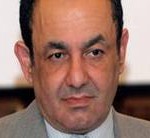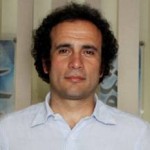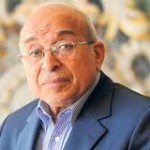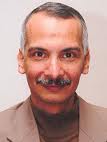The main debate in Egypt still pivots around the shaky relationship between religion and politics, expressed by the insistence of Salafi parties that the basis of legislation in Egypt be the “provisions” of Shari’a law, rather than the “principles.” The debate extends to include the nature of the state and its civility. While some call for the establishment of an Islamic caliphate, others want the foundation of a radical secular system. The recent killing of a student in the city of Suez by Islamist radicals still raises the concerns of many regarding what possible official reaction can be taken to halt religious violence, conducted in the name of commanding virtue and prohibiting vice.
Another issue being discussed is the value of peaceful demonstrations in delivering the demands of specific groups to the authorities following the revolution, and the necessity pay close attention to the suffering of ordinary Egyptians, especially in the fields of health and education. Finally, President Mohamed Morsy’s appointment of the lawyer who is defending Fathi Sourour in the Battle of the Camel case raises doubts about the true intents of such committee. This committee is in charge of investigating the events that led of the killings of demonstrators during the revolution.

A committee without principles
Mohamed Salmawi
Al-Masry Al-Youm
Mohamed Salmawi denounces what he observes to be an attempt by the Constitution Drafting Committee, dominated by the Freedom and Justice Party (the political wing of the Muslim Brotherhood), and the Al-Nour Party (the political podium of the Salafi movement), to write a constitution which reflects their parochial religious worldview, defying the national accord on the second clause in the current constitution.
The persistence of the Salafi parties, Al-Nour and Al-Asalah, on changing the term “Principles of Shar’ia” to “Shari’a”, as being the source of legislation in the constitution, and their threat to withdraw from the committee if the term “civil state” was included in the constitution, raise alarm bells for Salmawi on the true intents of the Islamist political factions.
The hasty drafting of the new constitution is, according to Salmawi, happening at a time when no parliament is present to invite the committee to convene. The formation of the committee has not yet been approved by the president, nor has its formation been published in the official newspaper. Salmawi considers these attempts to change the constitution as rogue attacks on the civil nature of the state. He questions how the constitution could be devoid of any “principles.”

The new values
Amr Al-Shobaki
Al-Masry Al-Youm
Comparing Mubarak’s era to the present day, Amr Al-Shobaki recalls a young man who was shot dead when he dared to drive in proximity of the presidential palace fence. He recounts how the Kifaya movement was warned by the presidential guard that they will be machine-gunned if their demonstrations came close to Mubarak’s residence.
Today, the relationship between the president and the people has so much evolved to the point of having mass demonstrations on the gates of the presidential palace, with some protesters breaking through the fence, only to be stopped by the security. These new values necessitate a fuller understanding of the economic demands of the protesting groups, taking into account that 1000 demonstrations took place right before the ousting of Mubarak’s regime.
Al-Shobaki thinks those say these protests are part of a conspiracy against Mohamed Moray, should consider the effect of 30 years of Mubarak’s rule on the economic conditions of Egyptians. Meanwhile, Al-Shobaki calls for the demonstrators to use a measured approach. He thinks they should lead by example, and use their newly acquired right of free speech, during this time of democratic transformation.

Health and Education
Amr Hamzawi
Al-Watan News
Amr Hamzawi urges his audience to consider the demands and protests of the employees of the health and education sectors, as justified and acceptable.
Over the past three decades, the sole aim of Mubarak’s repressive regime was to remain in power, regardless of the health and education crises felt by the overwhelming majority of Egyptians. Egyptians have, until now, suffered from bad health conditions and poor levels of education.
The maximum amount that was spent on health and education by Mubarak’s regime in any particular financial year did not exceed 5% of GNP. This was reflected in an extremely poor level of service offered to citizens. In the public sector, the greatest salary a doctor can make is EGP 1500, whereas a teacher can make on average EGP 600.
Hamzawi calls for a clear political will to develop the health and education sectors and a plan to gradually increase the salaries of doctors and teachers to acceptable levels. This should be accompanied by the establishment of bodies whose aim is to monitor the services being offered by these sectors, with the contribution of citizens profiting from such services, represented by civil society institutions.

It is neither a caliphate nor a secular state
Fahmi Howeidi
Al-Shorouk News
In an attempt to assess the rising confrontation between extremist Islamists and radical secularists, Fahmi Howeidi presents both groups as lacking the motive to establish a nation state enjoying political and social accord, and accuses them of concentrating on name calling rather than the real concerns of ordinary citizens.
Howeidi states that extremist Islamists calling for the establishment of an Islamic caliphate, such as Hizbul Tahrir, are not the people he is referring to. He is rather concerned with the Salafists who staunchly call for changing the second clause in the constitution to make the main source of legislation the “provisions” of Shari’a in lieu of “general principles” of Shari’a.
Using Rachid Al-Ghannouchi of Tunisia as an example, Howeidi says that despite his Islamist background, Ghannouchi’s political sensitivities, and wish to maintain national integrity, made him agree that Islam was the religion of the state of Tunisia, without reference to the term Shari’a.
The insistence of Islamists in Egypt to conform to details rather than broad principles is no different than the persistence of radical secularists whose dream is to dissect religion from the political life of Egyptians, who are a religious people by nature.

Not just a crime
Ahmed Al-Sawi
Al-Shorouk News
In a press conference on the arrest of the three “sheikhs” who killed the Suez student, the Minister of Interior confidently stated that there is no such organisation as “The Society for Commanding Virtue and Prohibiting Vice.”
While Ahmed Al-Sawi accepts that such society does not exist officially, he says dozens of “independent” religious zealots spread their poisonous calls for youth to take to the streets, correct wrong with their own hands, and implement the “sixth pillar of faith.”
The Minister of Interior happily considered the case closed after the arrest of the culprits, and the political Islamists were happy that those murderers do not belong to their official bodies, while the family of the murdered student felt at ease to see the criminals on their TV screens. The only side that has enough justification to be alarmed is the other citizens of Egypt.
The presidency, the Ministry of Interior, and political Islamists did not touch upon the measures they intend to implement to prevent the reoccurrence of such killings, which are likely to be repeated by people who do not necessarily hold a membership card of any religious or political organisation.

Sourour’s lawyer investigating
Mahmoud Khalil
Al-Watan News
Mahmoud Khalil expresses his disdain at President Mohamed Morsy’s decision to appoint Dr Mahmoud Kebaish, dean of the Faculty of Law at Cairo University, to the Fact-Finding Committee tasked with investigation of the killings of protesters during the January 25 revolution.
Because Kebaish is also a lawyer defending Mubarak’s Head of Parliament, Fathi Sourour, against allegations of killing demonstrators during the Battle of the Camel, Khalil concludes there is a tremendous conflict of interest. He says Kebaish is looking to prove the same person both innocent and guilty.
Khalil recounts how Kebaish transferred one his law students to a disciplinary committee for daring to describe him as a “big foloul” on Facebook (foloul means someone who belongs to the ousted regime).
Moreover, Kebaish stated that while the student had expressed insults that could put him under criminal prosecution; he considered the disciplinary action sufficient. Morsy’s choices reflect a dramatic change in his policies since his ascension to power. Khalil suggests that this committee will end up burying all evidence.



